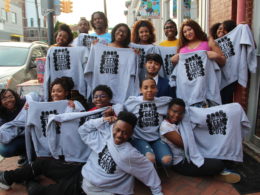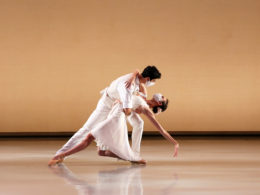Classical music is expensive and pretentious. These are just a couple of assumptions – albeit wrong ones – people might have toward classical music.
We caught up with Dave Davis, the board president of Richmond Philharmonic, who expressed his passion to bring classical music closer to everyone and his excitement about this upcoming season starting in September, which will be the 50th anniversary season of the organization.
Richmond Philharmonic offers opportunities for people of all backgrounds and socioeconomic levels to enjoy classical music. Moreover, it gives advanced, amateurs and semiprofessional musicians a place to play orchestral music.
We asked Davis our famous “five questions” to learn more about Richmond Philharmonic and how it serves our local community.

What is Richmond Philharmonic’s core mission?
The core mission is to bring classical music to people of all ages, backgrounds and demographics. We also allow amateur and semiprofessional musicians to play orchestral literature.
What I hope is that the Richmond Philharmonic is a gateway for people who either have never experienced classical music or they think they don’t like it. As a result, they don’t want to buy a ticket to the symphony. However, I hope that they’ll come to our concerts and find out for themselves how amazing classical orchestral music is. Then, they become regular concertgoers to the Richmond Philharmonic.
Were there any problems that the Richmond Philharmonic addressed during the pandemic? If so, can you characterize the problem locally?
The problem that the pandemic brought was that we were all inside and a lot of performing arts organizations did not have the plan or the capacity to do these online virtual things. So, a lot of different organizations, either scrambled to have some sort of online offering or they just sort of closed the doors for a year and didn’t have any performances.
In the past, we have charged a very nominal ticket price. Children 18 and under were free. Other tickets were $10, which compared to the professional orchestra, was very inexpensive. When COVID hit and all of us lost things that we enjoy, we decided to go completely free because we wanted people to come out and listen to live music.
We also did a couple of things. This is a completely out-of-the-box idea. We put together a podcast called “Cocktails with Conductors,” which featured our music director, Peter Wilson, and our assistant conductor, Will Pattie. We also had some special guests. The hour started with everyone making a cocktail. We published the cocktail recipe in advance so if people were into it, they could make the cocktail in advance. Peter and Will also made one on air. The rest of the hour was a discussion about various music topics.
We did record those sessions, and they are on our YouTube page. It was a very time- and labor-intensive project because we just scrambled to put it together. However, by the end, which I think was episode 14 or 15, we got into a pattern and a groove of how that project was going to lay out. It was fun and different. Also, it was done on Facebook Live as well as YouTube and Twitch. We also had the opportunity to do an online chat and Q&A with Peter and Will.
What do you think most people don’t understand or realize about the issues that the Richmond Philharmonic is facing during the COVID-19?
It’s not just the Richmond Philharmonic, but for all performing arts organizations. I’m not sure that folks quite understand that we had certain contractual obligations that we had to maintain. So, when we had to cancel a season, that caused other things to change in terms of funding. We lost the opportunity to get a lot of donors or sponsors. So, our funding decreased, but we still had financial obligations as an organization that we had to maintain such as insurance. We also need licenses (BMI and ASCAP) to play the music that we play. Moreover, we had a contract with our music director that we were obligated to. Thankfully, some of the economic stimulus money from the government helped out, but still, we lost some funding and that has been a challenge.

What kind of work can our volunteers, donor, or the community can do to help you, to help the Richmond Philharmonic, in general?
Funding is helpful. Helping us find those donors who are supportive of our mission and the arts in general and classical music in particular. There are also other volunteer opportunities if people want to help us with concert production. Not only do we play and rehearse the music, but we also produce the concert. We do everything ourselves. So, we are happy to have anyone who wants to hand out programs and help people find seats. Or maybe someone who has some interest or skills in stage management that can help us set up the orchestra.
Another big one, really, beyond the funding, is just getting the word out and getting more people in our seats.
If $100,000 fell from the sky tomorrow, how would you spend it?
I would be investing it in some endowment which will carry the music directors’ funding into the future. The other part of that money, I would do some other projects that we haven’t been able to afford, perhaps commission for new work, specifically for the orchestra, or maybe hold some concerto competition for a local school or college. So, those are things we would love to do, but they take a bit more funding than our regular budget.
If you’re interested in learning more about Richmond Philharmonic, visit its website or follow it on Facebook and Instagram. You can donate directly here.











Nice, Dave